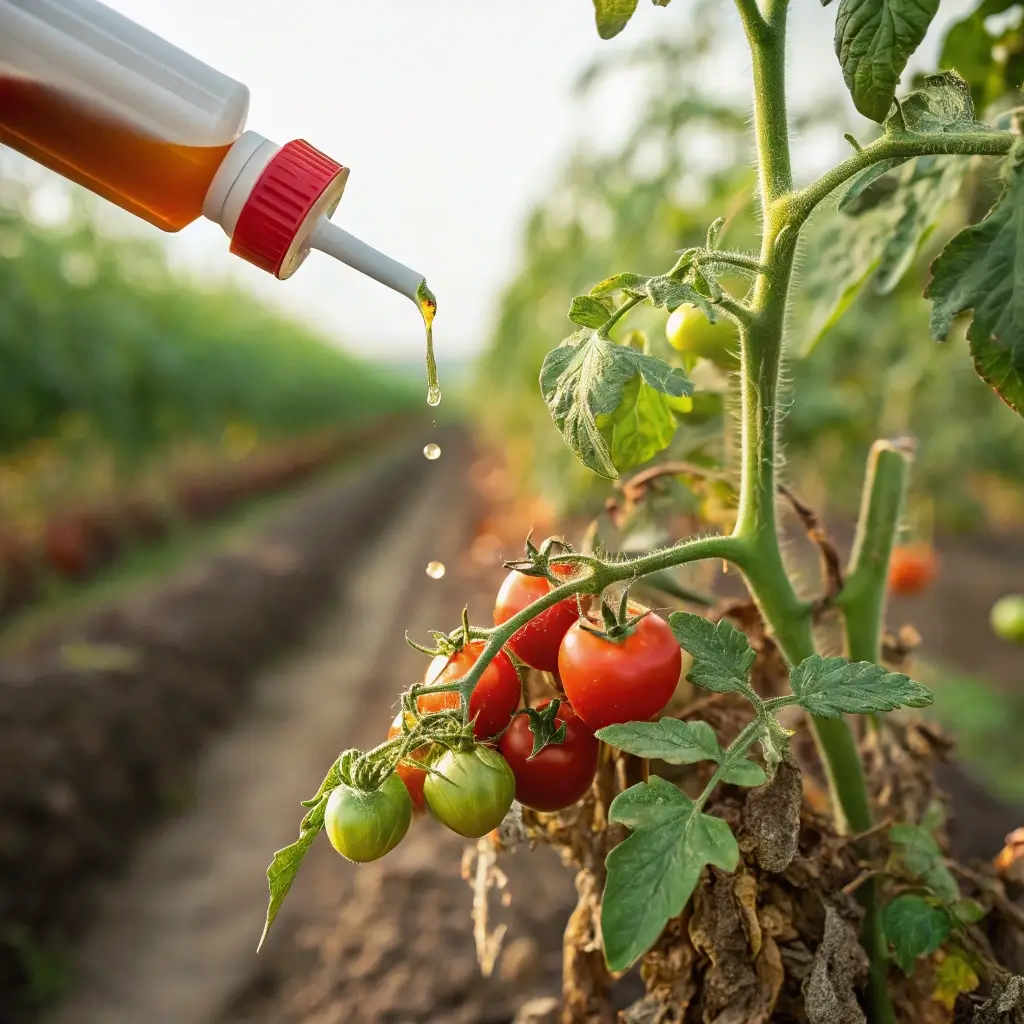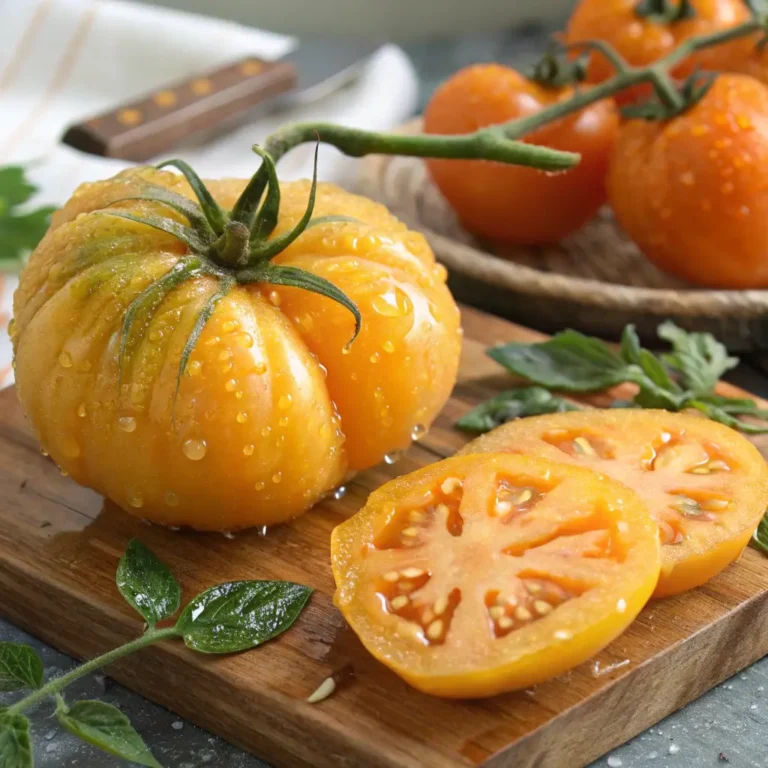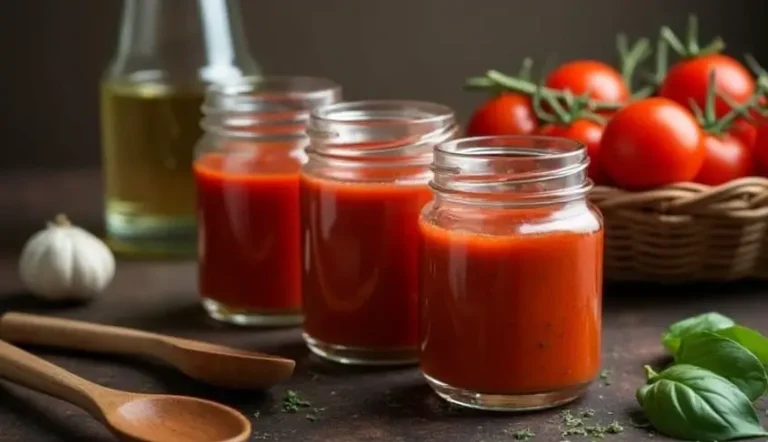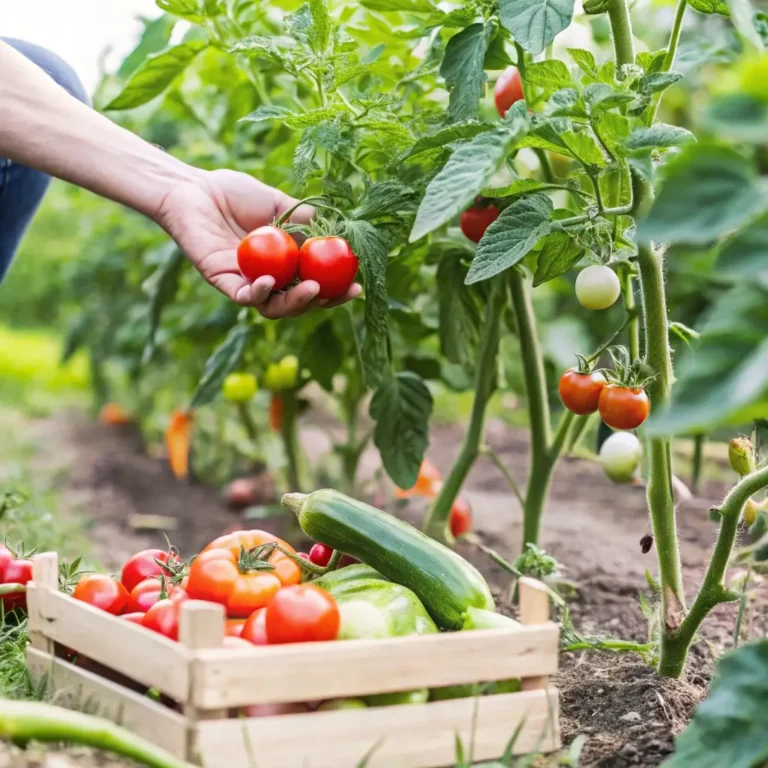How Can Vinegar Kill Tomato Plants? 3 Things to Know
Table of Contents
Introduction
Did you know that a common household ingredient sitting in your pantry right now could be lethal to your beloved tomato plants? When gardeners ask, “Can vinegar kill tomato plants?”, the answer might surprise you. While vinegar is celebrated as an eco-friendly weed killer, its effectiveness extends beyond unwanted plants—it can devastate your tomato crop if used incorrectly. In fact, studies show that household vinegar with just 5% acetic acid can cause visible damage to tomato foliage within hours of application. This post explores the science behind vinegar’s plant-killing properties and provides essential information for gardeners who want to protect their tomato harvests while still managing weeds effectively.
Ingredients List
To understand vinegar’s potential impact on tomato plants, let’s examine what makes this common solution so potent:
- White vinegar (5% acetic acid) – The most common household variety
- Apple cider vinegar (5-6% acetic acid) – Slightly more potent than white vinegar
- Horticultural vinegar (20-30% acetic acid) – Industrial strength used specifically for weed control
- Water – Often used to dilute vinegar for various applications
- Dish soap – Sometimes added to vinegar solutions to help them stick to plant surfaces
Optional additives that increase effectiveness:
- Salt – Enhances desiccation effects but increases soil damage
- Lemon juice – Adds citric acid for increased acidity
Timing
Understanding when vinegar causes damage is crucial for both protection and intentional use:
- Initial contact reaction: 2-3 hours for visible leaf wilting
- Complete foliage damage: 24-48 hours (90% faster than many chemical herbicides)
- Recovery potential: None to minimal after full-strength application
- Best application time for weed control: Hot, sunny days when temperatures exceed 70°F for maximum effectiveness
Step-by-Step Instructions
Step 1: Understand How Vinegar Affects Plants
Vinegar works as a contact herbicide by breaking down the waxy protective coating on plant leaves. The acetic acid disrupts cell membranes, causing rapid desiccation and cell death. For tomato plants, which have relatively thin leaf cuticles compared to weeds like dandelions, this effect is particularly devastating. The acid essentially burns the plant tissue, causing it to dry out and die.
Step 2: Recognize the Damage Patterns
When tomato plants come in contact with vinegar, they exhibit characteristic symptoms: leaves develop brown spots within hours, followed by wilting and curling. Within a day, affected foliage typically turns completely brown. Unlike disease symptoms that progress gradually, vinegar damage appears suddenly and uniformly on contacted surfaces.
Step 3: Prevent Accidental Damage
To protect your tomato plants when using vinegar as a weed killer nearby, apply these precautions: use a spray shield (a cardboard barrier works well), apply only on windless days, and cover tomato plants with plastic sheeting if spraying in close proximity. Remember that even vinegar vapor can drift and damage sensitive plants up to 3 feet away on windy days.
Nutritional Information
Vinegar’s effects on soil can impact the nutritional value of your tomatoes:
- Soil pH alteration: Repeated vinegar applications can lower soil pH by 0.5-1.0 points
- Nutrient availability: In acidified soil, key nutrients like phosphorus become less available
- Microbial impact: Beneficial soil microorganisms show 30-45% reduced activity in vinegar-treated soils
- Recovery time: Soil needs approximately 2-4 weeks to return to normal pH levels after significant vinegar exposure
Healthier Alternatives for Weed Control
Instead of risking damage to your tomato plants with vinegar, consider these safer options:
- Corn gluten meal: A pre-emergent organic herbicide that suppresses weed seed germination while providing 10% nitrogen to your plants
- Mulching: A 3-inch layer of organic mulch reduces weed growth by up to 90% while conserving soil moisture
- Hand-weeding: Most effective when soil is moist; removes weeds without chemical risks
- Boiling water: Precisely targeted application provides immediate results without residual soil effects
- Flame weeding: Quick and effective for pathways near tomato beds (maintain safe distance of at least 3 feet)
Serving Suggestions
If you’re intentionally using vinegar for weed control around your garden, here are optimal application methods:
- Apply undiluted household vinegar directly to weeds using a spray bottle with a precision nozzle
- For enhanced effectiveness, mix 1 gallon white vinegar with 1 cup salt and 1 tablespoon dish soap
- Treat weeds during the hottest part of the day when temperatures exceed 75°F for maximum impact
- Reapply after 1-2 weeks for stubborn perennial weeds
- Maintain a minimum 4-foot buffer zone between application areas and your tomato plants
Common Mistakes to Avoid
When using vinegar in gardens with tomatoes:
- Spraying on windy days: Vinegar drift can travel up to 10 feet in gusty conditions
- Using enhanced vinegar solutions near vegetables: Mixtures containing salt can damage soil structure for up to 6 months
- Assuming rain will prevent damage: Once vinegar contacts plant tissue, rain within 4 hours typically won’t prevent injury
- Underestimating concentration: Horticultural vinegar (20-30%) causes irreversible damage to all contacted plant tissue within minutes
- Neglecting soil impact: Repeated applications can create long-term soil acidity issues that affect garden productivity
Storing Tips for Vinegar Solutions
If you prepare vinegar for garden use:
- Store in clearly labeled containers marked “HERBICIDE – NOT FOR CONSUMPTION”
- Keep solutions in cool, dark locations to maintain acetic acid potency
- Use plastic rather than metal containers to prevent corrosion
- Mix fresh batches rather than storing for extended periods (effectiveness decreases by approximately 15% per month)
- Keep separate spray equipment dedicated solely to herbicide use to prevent cross-contamination
Conclusion
The answer to “Can vinegar kill tomato plants?” is a resounding yes. This common household product contains acetic acid powerful enough to destroy the cellular structure of your tomato plants upon contact. Understanding vinegar’s destructive potential helps gardeners make informed choices about weed management near sensitive crops. By implementing proper precautions and exploring safer alternatives, you can maintain both a weed-free garden and healthy, productive tomato plants. Remember that what makes vinegar an effective natural herbicide also makes it a serious threat to your precious tomato harvest.
FAQs
How quickly will vinegar kill a tomato plant?
Visible damage appears within 2-3 hours, with complete leaf death typically occurring within 24-48 hours after application.
Can tomato plants recover from vinegar damage?
Minor exposure might allow recovery, but direct application of household vinegar typically causes permanent damage to contacted tissue. New growth may emerge from undamaged portions of the plant.
Is vinegar-damaged soil safe for planting tomatoes later?
After vinegar application, wait 2-4 weeks before planting in treated soil. Test soil pH before planting, aiming for a reading between 6.0-6.8 for optimal tomato growth.
Does diluted vinegar still harm tomato plants?
Yes, even solutions diluted to 2-3% acetic acid can damage tomato foliage. The effect is less severe but still harmful.
Can I use vinegar to kill weeds between tomato plants?
This is not recommended due to high risk of accidental contact. Use precise hand-weeding or mulching between tomato plants instead.







